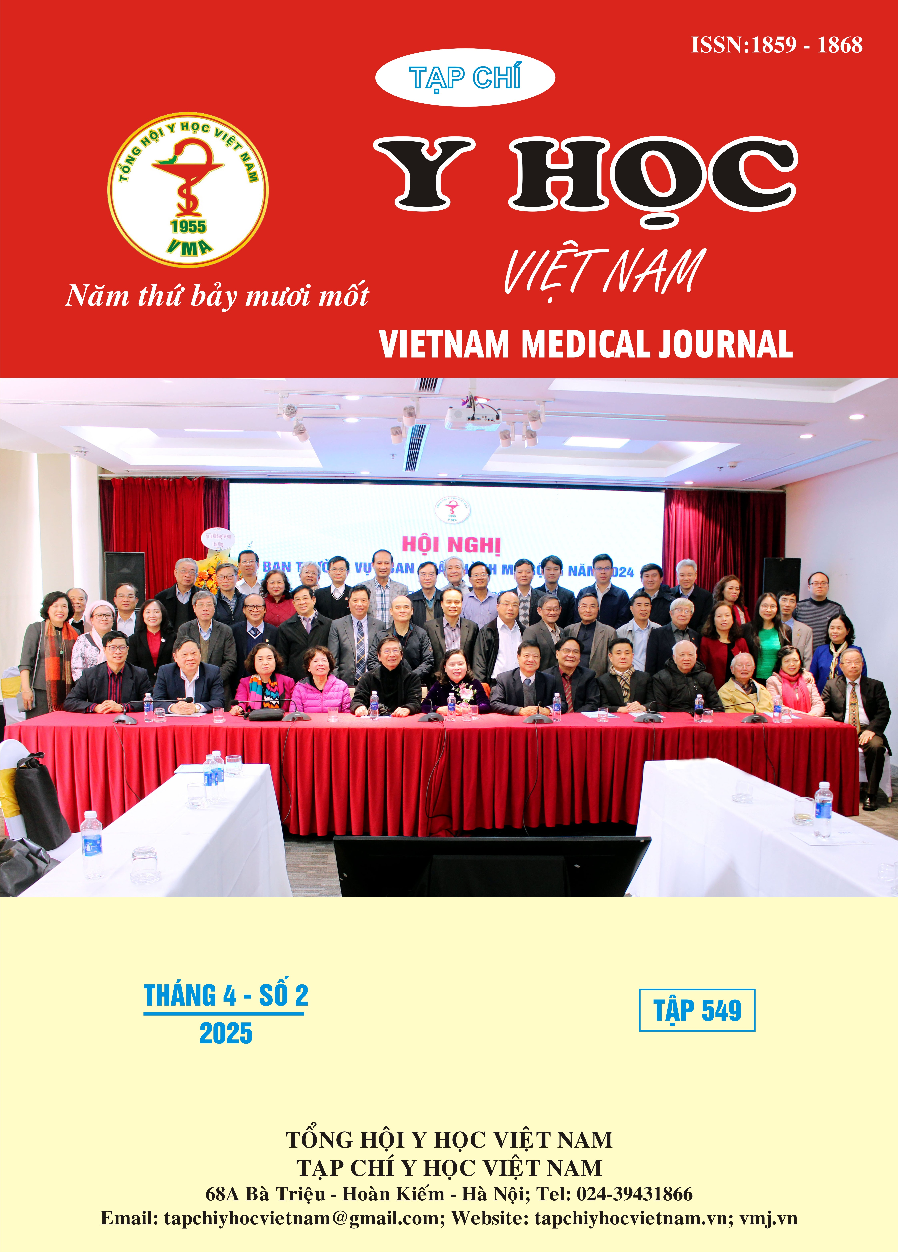ASSESSMENT OF THE RESULTS OF USING PROPHYLACTIC ANTIBIOTIC CEFAZOLIN 1G IN CESAREAN SECTIONS AT DONG ANH GENERAL HOSPITAL IN 2023
Main Article Content
Abstract
Objective: To review the characteristics and clinical outcomes of pregnant women receiving prophylactic antibiotic Cefazolin 1g during cesarean sections and evaluate the effectiveness of its use. Subjects and Methods: This prospective study was conducted on all pregnant women undergoing cesarean sections with prophylactic Cefazolin administration at the hospital's Obstetrics Department between July 1, 2023, and September 30, 2023. Results: The average age of the participants was 27.61 ± 4.61 years. Among the indications for surgery, the most common was a previous cesarean section (70.9%). Most surgeries lasted less than 60 minutes. The average length of hospital stay was 4.18 ± 0.98 days, with early discharges (within 3 days) accounting for 42%. Prophylactic antibiotic use followed the Ministry of Health guidelines. No cases required additional antibiotic treatment during the hospital stay. Follow-up calls 30 days after discharge revealed no cases of wound infection during hospitalization. However, 5 cases of wound infection (5%) were reported within 30 days after discharge. Other postpartum complications were mild and resolved without additional intervention. The cost of using prophylactic antibiotics was more economical compared to treatment antibiotics. Conclusion: The use of prophylactic Cefazolin 1g in cesarean sections, according to the Ministry of Health's guidelines, is safe, reduces treatment time, and offers economic benefits. It is recommended for routine application in the Obstetrics Department of Dong Anh General Hospital.
Article Details
Keywords
Using prophylactic antibiotic Cefazolin 1g, Cesarean sections
References
2. Vũ Văn Hiệp và cộng sự (2022). Kết quả sử dụng kháng sinh dự phòng nhiễm khuẩn vết mổ trên bệnh nhân phẫu thuật lấy thai tại Bệnh viện trung ương Thái Nguyên, Tạp chí Y Học Việt Nam, tập 536 số 2 (2024).
3. Nguyễn Văn Đời, Nguyễn Thắng. Tình hình sử dụng kháng sinh dự phòng trên bệnh nhân phẫu thuật mổ lấy thai tại một bệnh viện tỉnh Sóc Trăng năm 2022, Tạp chí Y dược học Cần Thơ, số 62 (2023).
4. Lê Thị Thanh Vân và cộng sự (2023-2024). Nghiên cứu đặc điểm sử dụng kháng sinh dự phòng trong phẫu thuật sản phụ khoa tại một bệnh viện ở thành phố Cần Thơ năm 2023-2024, Tạp chí Y học Việt Nam, tập 541 số 1 (2024)
5. Nguyễn Thị Thu Hà (2019), Tỉ lệ và các yếu tố liên quan của nhiễm khuẩn vết mổ sau mổ lấy thai tại bệnh viện Từ Dũ, Tạp chí Y Học TP. Hồ Chí Minh, Phụ bản tập 23, số 2, 2019.
6. Olsen MA, Butler AM, Willers DM, Devkota P, Gross GA, Fraser VJ (2008). “Risk factors for surgical site infection after low transverse cesarean section”. Infect Control Hosp Epidemiol, 29:477-484.
7. Antibiotic prophylaxis in obstetic procedure. The society of obstetricians and gynaecologists of Canada (SCOG) clinical practice guidline, 2010.


